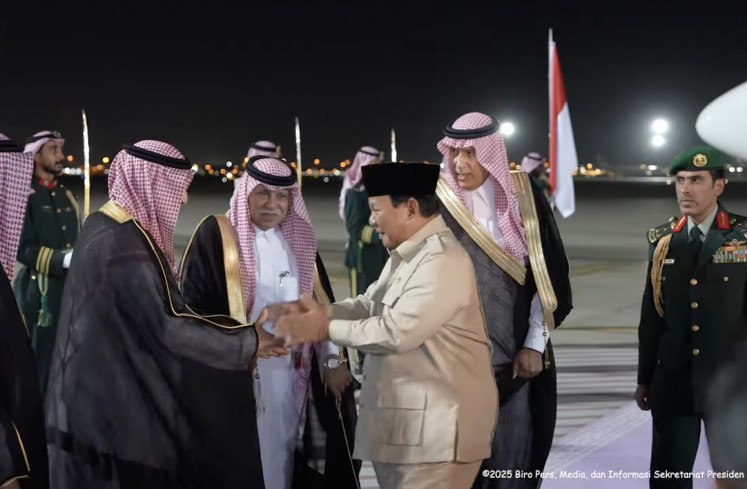Popular Reads
Top Results
Can't find what you're looking for?
View all search resultsPopular Reads
Top Results
Can't find what you're looking for?
View all search resultsEditorial: Regulatory reform: Just do it
President Joko âJokowiâ Widodo pledged last week to revise 154 regulations pinpointed by the chief economics minister as major barriers to economic activity
Change text size
Gift Premium Articles
to Anyone

P
resident Joko 'Jokowi' Widodo pledged last week to revise 154 regulations pinpointed by the chief economics minister as major barriers to economic activity. Yet in an even more astounding revelation, National Development Planning Minister Sofyan Djalil said on Monday that a study by his office had discovered more than 2,700 regulations, presidential and ministerial decrees that hindered economic development.
Like a good deal of policymaking processes in the country that are fragmented across many ministries and government agencies, there is simply no formal, independent evaluation process to assess regulations from an economy-wide perspective, or to ensure public consultation involving a broad base of stakeholders takes place.
Various high-level teams like those that worked overtime at the Bogor Presidential place over the last few days have conducted periodic regulatory reviews and held consultations with stakeholders, but this has occurred mostly on an ad hoc basis and has tended to be in response to fiscal or financial crises, rather than as an inherent requirement embedded in the regulatory process.
Independent and objective evaluations of policies from an economy-wide perspective are not currently institutionalized. There is no strong mechanism to ensure public consultations involving a broad base of stakeholders. Rules or guidelines that ensure contact and consultations with experts in the relevant policy evaluation teams would have been greatly useful.
The fragmentation of the policymaking process has led to an increase in opportunities for special interests to exert influence. As a result, the government should consider embedding impact assessments systematically into the regulatory framework for all policies that meet a pre-defined threshold test.
To conduct such evaluations, stronger coordination among line ministries is critical. In recent years, there have been several prominent examples of new regulations that contradict higher order laws and regulations, leading to uncertainty. Such coordination is particularly important in the context of the big-bang decentralization of authority in 2001 and the increasing influence of the House of Representatives in regulatory policy.
As a result of these changes, line ministries now seem to have more control over the policies within their sectors and sectoral interests have greater political sway. This leads to potential protectionist tendencies that can only be offset by independent evaluations that take an economy-wide approach to policymaking.
A clearing house for conflicting regulations would be useful in this regard. And as part of the streamlining process, the government should make an inventory of all business licenses and permits at the national level, documenting the objectives of each license/permit, the issuing authority, and examining whether the license/permit represents a barrier to entry that should be abolished.
A key to improving coordination between the central government and regional administrations is improving human resource capacity. If officials reviewing new and existing laws and regulations do not have the proper training and incentives to carry out such a task, regulatory reform, desperately needed, will not take place.









